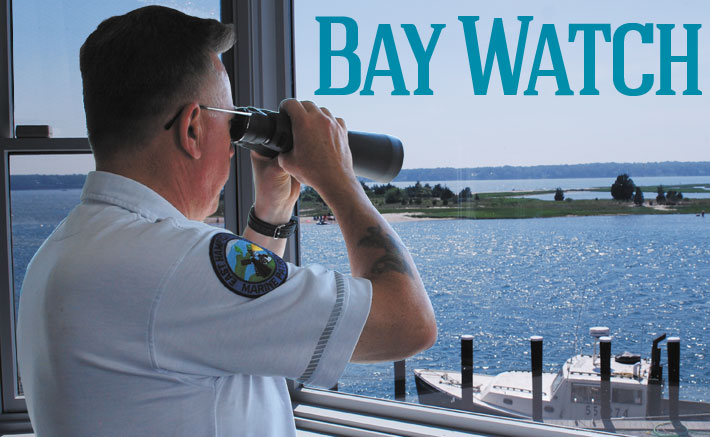
It is easy to forget that marine units patrolling the shores of LI also make up the first line of national defense, geographically and figuratively speaking.
Nassau Marine Bureau officers who teach a state-run boater safety course—a requirement for all PWC operators and boaters under 18—recalled during a recent eight-hour class how their unit helped foil a terrorism plot to blow up fuel tanks at John F. Kennedy International Airport in 2007.
A witness reported men videotaping planes to and from JFK while standing on the deck of a boat in the western bays near the Queens border. Nassau’s marine officers interviewed the men and passed along the tip to federal investigators. Members of the group were later convicted on terrorism charges.
Nassau County police declined an interview request with Marine Bureau officers for this story, but the widely shared anecdote illustrates the significance of having such officers on the front lines—and an informed public that reports suspicious activity.
“You don’t know what you don’t know,” says Jim Horton, assistant director for the state Office of Counter Terrorism, which provides grant funding to local agencies for the foreign-flag vessel boarding operations. “It’s quite open out there. We hope we’re creating a deterrence.”
He does not discuss specific cases, but notes that such efforts have intercepted a few drug runners and human smugglers—although it’s not quite as bad as the Prohibition era, when largely unchecked bootleggers dubbed LI’s shores “Rum Row.”
Sgt. John Andrejack, commanding officer of the Suffolk sheriff’s marine patrol unit, says Operation SHIELD has shed light on some local security blind spots. For example, coordinated marina checks have helped authorities develop databases of vessels and identify travel patterns.
“The sheer magnitude of the number of recreational vessels is a daunting task to try to police or patrol from a homeland security standpoint,” admits Andrejack, who was among those patrolling Sag Harbor for the recent fireworks show. “I think very little is escaping us,” he adds.
During Topical Storm Irene, boaters forced inland were met by authorities who checked more than 252 vessels, over 45 foreign, finding 12 federal law violations, including failure to report, 89 other violations, and three boats containing hazardous materials—making for one unusually busy pre-Labor Day weekend last year.







